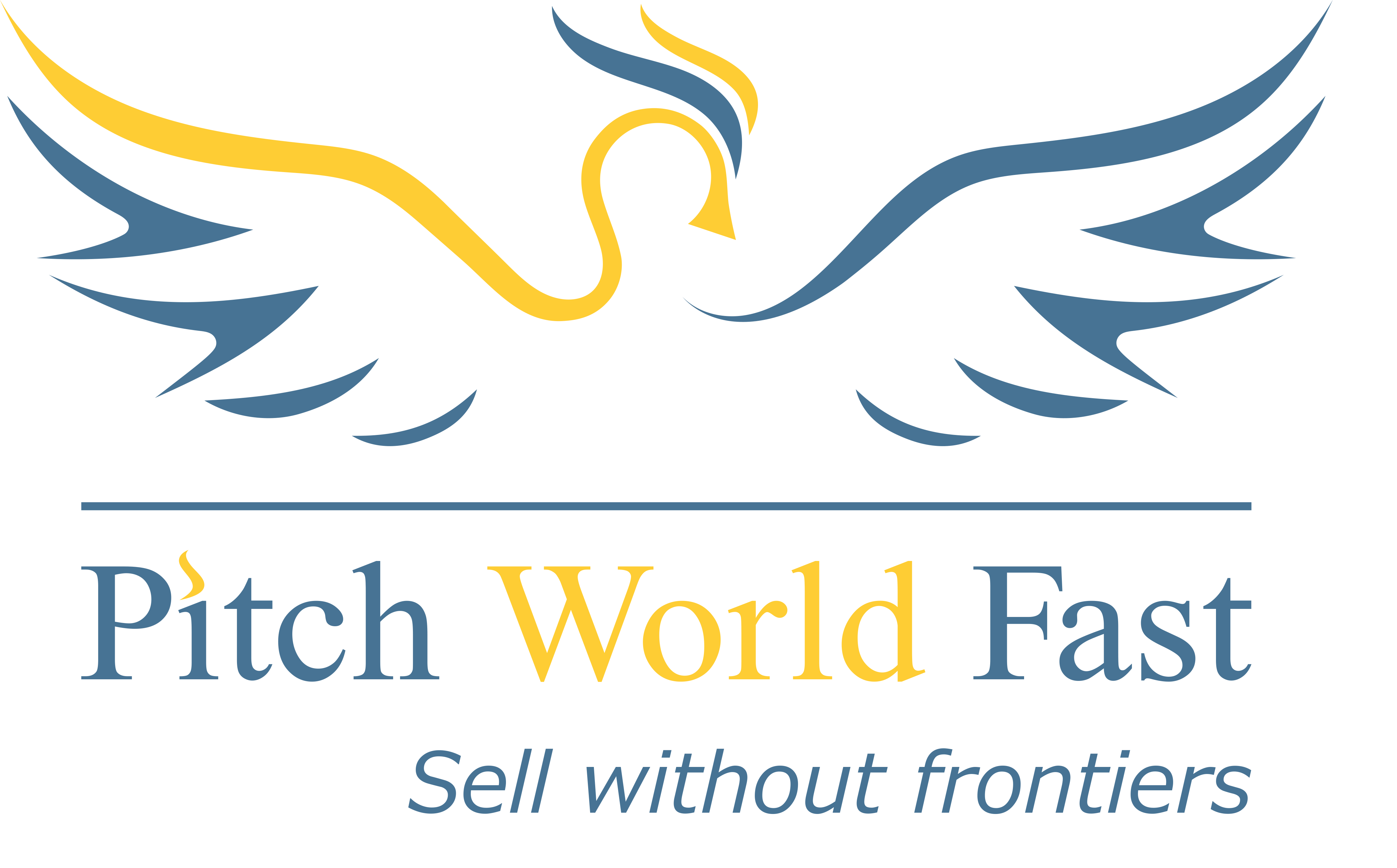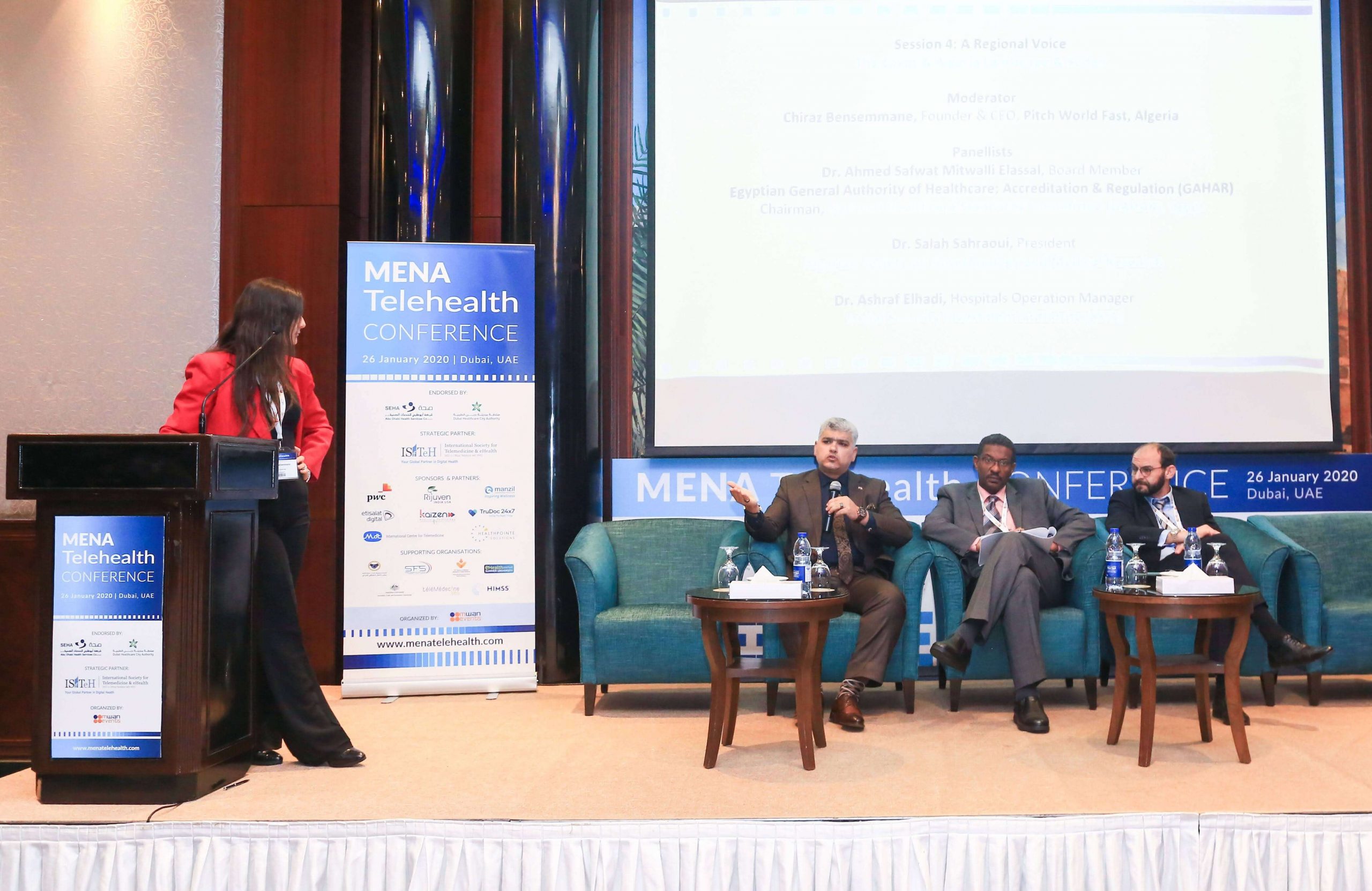In December 2019, we were invited by the MWAN Events to participate at the first MENA Telehealth conference in Dubai, to be held on the 26th of January.
The conference highlighted the opportunities and market access related to establishing Telehealth Legal and Business models in MENA region. In this regard, different models were presented as well solutions from Germany, France, Bahrain, Kingdom of Saudi Arabia, United Arab Emirates among others.
We had the chance and honour to moderate the panel where Egypt, Algeria and Soudan were sitting explaining what were the regulatory environment of their countries in regard of Telehealth, the ongoing projects in this field, the needs and expectations of their countries as well as the question of Access Market.
Our first panelist was Dr. Ahmed Safwat Mitwalli Elassal from Egypt, specialist neonatologist, Board Member of the Egyptian General Authority of Healthcare Accreditaion & Regulation (GAHAR) and Saudi Excellence Program Advisor. GAHAR is intrumental in developing the national healthcare standards and ensuring the compliance of all healthcare facilities with them.
Our second panelist was Dr. Ashraf Obeid M. El Hadi from Soudan, hospital operation manager at the Social Security Investment Authority. He was member of the National Committee which has been assigned to write the 25 years strategic Plan for the Health Sector, contributed to the ehealth strategy for the Soudan as well as responsible for designing and implementing the Health Management Information System Project.
Our third panelist was Dr. Salah Eddine Sahraoui from Algeria, president of the Algerian Society of Biotechnology & Medical Research, medical doctor with major in clinical research. He created the first CRO in Algeria and is also consultant for the Ministry of Health of Algeri for the eHealth dossier.
In Algeria, there are general laws which manage the telehealth/ehealth activity and which concern:
• Electronic communications, such as Law No. 18-04 of 24 Chaâbane 1439 corresponding to May 10, 2018 setting the general rules relating to the post and electronic communications. (Example: Art. 97. – The establishment and operation of electronic communications networks open to the public and the provision of electronic communications services to the public are subject to compliance with the following: – the conditions of permanence, quality of services, availability, security and integrity of networks and services and all other essential requirements as laid down in the specifications; – the conditions of confidentiality of data and information sent over electronic communications networks; – the conditions of protection of the privacy of subscribers and personal data)
• The protection of personal data, such as law n ° 18-07 of 25 Ramadhan 1439 corresponding to June 10, 2018 relating to the protection of individuals in the processing of personal data (Example: Article 1. – This The purpose of law is to lay down the rules for the protection of individuals in the processing of personal data.
Art. 2. – The processing of personal data, whatever its origin or form, must be done within the framework of respect for human dignity, privacy, public freedoms and must not infringe the rights of people, to their honor and reputation.
Art. 3. – For the purposes of this law, the following definitions apply:
…
“Sensitive data”: personal data which reveals racial or ethnic origin, political opinions, religious or philosophical beliefs or trade union membership of the data subject or which relates to his health including his genetic data;
…
“Health data”: any information concerning the physical and / or mental state of the person concerned, including their genetic data)
However, there are no specific texts for telehealth activity. The WHO-MSPRH e-health legal framework project is focused on this component. For the moment, only the electronic medical record component has been finalized.
In addition, in Algeria, Telemedicine is mainly used for specialized (secondary) care. The telemedicine device in place allows patients in the southern (desert) regions to have access to specialist consultations. This system interconnects five (05) university hospital centers (CHU) in the north (Algiers, Oran, Constantine, etc.) with twelve (12) public hospital establishments (EPH) in the south. There are plans to extend this network to the Hauts Plateaux region, which is also underserved by medical specialists.
Should you want to learn more about eHealth in Algeria, we invite you to go to our website dedicated to our projects, the Round Tables where we have discussed those question on different round tables : www.tablesrondesalgerie.com
Thank you again MWAN Event for this opportunity !
Congratulations again to the team, for their work and for bringing such experts to discuss this topic.

